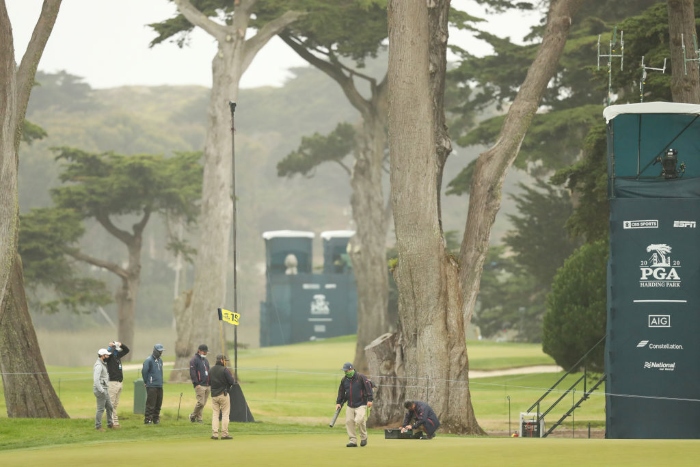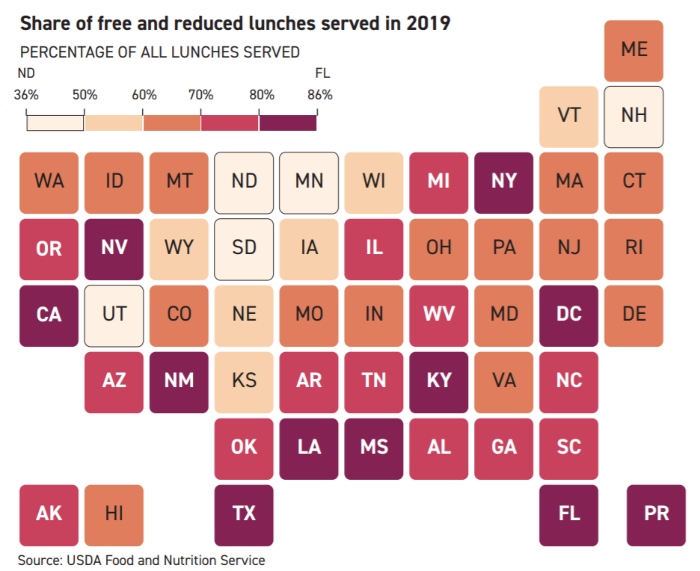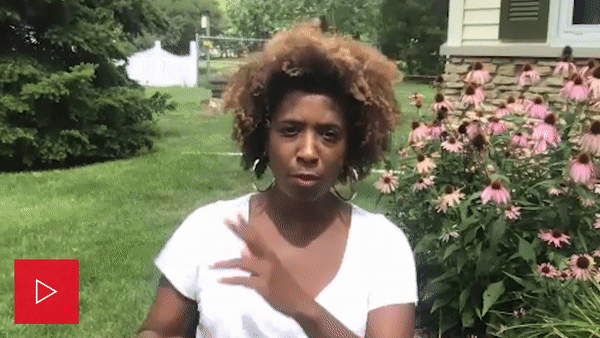| | | |  | BY RYAN HEATH AND RENUKA RAYASAM | Presented by |  |
|
| With help from Myah Ward TRUMP PROMISES ACTION — In a press conference tonight from his club in Bedminster, N.J., President Donald Trump said he would take executive action if negotiations with congressional Democrats did not yield results, possibly by the end of the week. "If Democrats continue to hold this critical relief hostage, I will act under my authority as president to get Americans the relief they need," Trump said. YOUNG AND THE RESTLESS — If the American Dream is the ability to build a family in which the next generation is better off than one’s own, the wheels are now truly starting to come off, after being badly shaken by the 2008 financial crisis. The coronavirus pandemic has led to an economic swoon of historic proportions, leaving millions of Americans — particularly young adults — feeling like they are losing their ability to plan for the future. That’s not a new feeling for young people in many parts of the globe, but Covid-19 has spread the economic anxiety to a far broader swath of Generation Z. The International Labor Organization says 1-in-6 people between the ages of 18 and 29 have stopped working since the beginning of the pandemic. Those still working saw their hours fall by 23 percent. In the United States, youth unemployment shot up from 8 percent to 25 percent thanks to Covid-19 lockdowns. While official youth unemployment numbers actually fell in Italy, it appears to be because many simply gave up looking for work and dropped out of the labor market. Taken together, that’s leading to a generational split starker than any previous recession, according to Italian economist Tito Boeri. Long-term problems may run deepest in Africa: 1-in-3 Africans today are aged 15 to 34, and the median age is 19, compared to 38 in America. Economists agree that the newest members of the labor market tend to be hardest hit by recessions. Those lucky enough to keep or score jobs suffer, too: Salaries are cut just as competition for them spikes, setting an individual back a financial rung, with implications that can last for their whole career. While many around the world are supported by paycheck protection programs or study grants, that safety net is temporary, and there’s no wave of new jobs on the horizon. Most of the companies doing the best right now — large tech companies — don’t employ many people relative to their turnover. “The ‘corona class of 2020’ could face years of reduced pay and limited job prospects, long after the current economic storm has passed,” said Kathleen Henehan, of the Resolution Foundation, a London-based think tank that reports on living standards. Young people themselves agree with this gloomy outlook. University of Pennsylvania Professor Mark A. Brennan gave Nightly a preview of a new U.N.-backed global survey he co-authored of young people’s attitudes during the pandemic. Those between the ages of 23 and 35 describe “catastrophic” levels of concern for their future, a feeling that is consistent across geographic locations and genders. Brennan pinpoints the issue as the “intersection of disruptions to their education, family and financial well-being.” America’s education-industrial complex is unique. The college system will leave many with six-figure debts while teaching them on Zoom (and keeping them from experiences and networks that could make the debt worthwhile). Stacked with tenured staff (the average salary of a U.S.-based professor is $104,820), many colleges don’t know how to operate outside the high-fee, high cost-overhead model. It is students who are paying the price. European students face different challenges that may amount to the same lost generation. Instead of being overcharged, many European youth get underserved on quality, via mediocre teaching in mediocre facilities, with little in the way of customized digital support. Germany’s famously rigorous vocational training path is an exception rather than the rule. Young European workers in countries like Italy, Spain and Greece — who were largely shut out of permanent contracts with generous benefits before the pandemic — now face situations like Alessandro Margiotta, a young Italian, who told POLITICO he lost a six-month contract due to Covid-19 shut-downs, before turning to a one-week contract and then unemployment benefits. Such fragile employment makes home ownership a mirage for a generation of Europeans who lack parental assistance, which is at the heart of the long-term problems caused by Covid-19. Most young people in rich countries will now face a difficult path to accumulating wealth based on hard work, a problem already familiar to Black families and other disadvantaged groups in the U.S. Down the road, the political impact of a large class of disaffected youth could be profound — and unexpected. Just ask the countries rocked by the Arab Spring. Welcome to POLITICO Nightly: Coronavirus Special Edition. I learned today that I am an “Xennial.” Reach out rrayasam@politico.com or on Twitter at @renurayasam.
| |
| | A message from PhRMA: America’s biopharmaceutical companies are sharing their knowledge and resources more than ever before to speed up the development of new medicines to fight COVID-19. They’re working with doctors and hospitals on over 1,100 clinical trials. Because science is how we get back to normal. More. | | | | | SHADOW SCHOOLS — A roller rink. The YMCA. Houses of worship. All are creating makeshift classrooms this fall as school campuses remain closed around the country because of the pandemic. For working parents, it brings much-needed relief after what’s been an exhausting four-plus months since the coronavirus pandemic began. But it also raises public health questions: If it’s not safe to open schools this fall, why would these so-called “learning hubs” be any different? California reporter Katy Murphy writes that the prolonged crisis has forced American communities into a late-summer frenzy to replace what schools normally provide, especially for children who don’t have a safe or quiet place to learn at home. While affluent parents are forming multi-family "pods" and hiring nannies and educators to teach their children at home, cities, nonprofits and businesses are racing to fill the void with programs that can look like parallel schools — without teachers. From California to North Carolina, YMCAs and Boys and Girls Clubs are creating all-day learning centers that make sure students stay on task during virtual classes with their actual schools while their parents are at work. In some cases, local governments are stepping in with subsidies and child care — New York City plans to provide 50,000 free daily slots for school kids whose campuses have staggered schedules.
| 
Members of the grounds crew maintain a green before the start of the second round of the 2020 PGA Championship at TPC Harding Park in San Francisco. | Getty Images | | |
| | BECOME A CHINA WATCHER : Tensions between the U.S. and China continue to rise following the shuttering of China's consulate in Houston. Is it possible for the two countries to hit the "reset" button or is that just a pipe dream? Join the conversation and gain expert insight from informed and influential voices in government, business, law, tech and academia. China Watcher is as much of a platform as it is a newsletter. Subscribe today. | | | | | | | OLYMPIC DREAMS DEFERRED — In a normal year we would have spent this past week watching Simone Biles nail a new vault stunt or Katie Ledecky glide across a pool (without a glass of milk on her head). But the 2020 Olympics games, originally scheduled to end this Sunday in Tokyo, have become another pandemic casualty: They’re now set to take place in the summer of 2021. The postponement is also another setback for the U.S. Olympic Committee, which has been roiled by the conviction of Larry Nassar, the USA Gymnastics doctor who sexually abused young athletes for over a decade. The investigation has even sparked congressional reform. Sarah Hirshland took over the USOC in 2018, while the organization was still coping with the fallout of the investigation. She’s the group’s first female permanent CEO. Nightly spoke with Hirshland this week about how the organization and aspiring Olympic athletes are coping with the delay and whether she thinks the Tokyo games will happen, at all. This conversation has been edited. You should have now been in Tokyo right now cheering on Team USA athletes — what are you doing instead? Last year we went into a pretty significant transformation for the organization. The postponement of the games has given us a little more space to accelerate that implementation in our governance reform work. We’re investing in our athlete services more deeply than we might have been able to if we were in Tokyo. We have invested quite a bit over the last six months to 12 months in building mental health expertise. Stress, anxiety, depression, addiction, eating disorders, those sorts of mental health challenges that, frankly, are just societal, can be exacerbated under the high stress environment of Olympic and Paralympic sport. The greatest challenge continues to be awareness of the resources and the stigma in saying it's OK to not be OK. How are athletes coping with the yearlong delay — and training in the age of Covid? Whether it's our coaches, our sports psychologists, the sports scientists — each of them are working in tandem to adapt the training cycle that ensures the athletes are at peak performance at exactly the right moment in time. That’s a pretty complicated and detailed process. For a time, many of our swimmers were unable to access pools so their training was on the ground, different types of strength and conditioning than what they might have been used to previously. For some, particularly those who have been training since they were very young, it may be the first time in 10 or 15 years that they haven't been in the water for a couple of months. Many of the combat sports are still very restricted in their ability to properly train in the environment because of the natural human interaction required. Do you think the games will actually happen in 2021? I am planning for them to happen, but we're also planning for them not to happen because that's the prudent response. It would be, first and foremost, a tragedy for the athletes who may never have their opportunity to compete. It would be financially devastating to our organization. That's a dark storm cloud that's looming and we're incredibly hopeful that it doesn't come to that. How are you rebuilding trust with athletes especially after the Larry Nassar trial? I have to admit I cried watching some of the athletes testify. What we heard was people were concerned about speaking up. They were concerned about retaliation. They were concerned about being listened to. We needed to create a culture where people can speak up both inside our own organization and within the athlete community. We'll see significantly greater athlete representation, not only in our board and our committees and governance structure, but also down through the national governing bodies. We're going to work to adjust our culture and to make sure that we are truly focused on athletes first. What has been the financial impact of the postponement? The vast majority of our revenue that we would have expected to come in this year as a result of the games is deferred into next year. We do expect that revenue to decline some from the corporate community and potentially the broadcast community. The vast majority of the reductions are both people and some expenses around our training centers. We went from having as many as 350 athletes a night, residing and training in the training centers down to, at one point, we had less than 20 athletes here in Colorado Springs. Do you expect pandemic to leave a lasting impact on Olympic sports? I say all the time each of our Olympic and Paralympic athletes started their sport journey at a pool or a rink or a soccer field or gym somewhere in a community. We need those facilities to be vibrant and strong. What none of us can lose sight of is each of these are also likely either municipally run or small businesses that are struggling to figure out how to survive. The key for all of us is to ensure that as we are recovering and or evolving as a society that sport doesn't get left behind.
| | DEJOY CRIES BS OVER USPS DISTRESS — The head of the United States Postal Service today denied claims he was sabotaging election mail on behalf of Trump, as large delivery delays spark fears of a voting crisis associated with an increase in mail-in ballots, Max Cohen writes. Members of Congress from both parties fiercely criticized Postmaster General Louis DeJoy, a former business executive and major Trump donor, after he instituted changes that critics say have slowed down service during a crucial period. On Thursday, lawmakers urged DeJoy to switch course on policies that limited overtime pay for Postal Service workers and mandated that if distribution centers were backlogged, mail must be kept there until the following day. Voting rights advocates raised alarms about the changes, formalized in a July directive, which they view as an attempt to carry out the president’s longtime wish to reimagine the Postal Service . DeJoy pushed back against these claims during an open meeting of the Postal Service’s Board of Governors this morning. “While I certainly have a good relationship with the president of the United States, the notion that I would ever make decisions regarding the Postal Service at the direction of the president or anyone else in the administration is wholly off base,” DeJoy said.
| |
| |  
| | | | | Nightly asked you: What concerns you the most about the November election? Below are some of your lightly edited responses. “1. Poor turnout because of the pandemic. 2. Foreign and/or domestic interference. 3. Social media trolling. 4. Electoral college members going rogue.” — Roger Larrea, nurse, Colton, Calif. “I worry about a combination of an ‘October surprise’ too late to be debunked, and voter suppression and overwhelmed election boards — altogether resulting in a skewed vote count.” — Sally Gordon, retired, Rio Rancho, N.M. “My biggest concern countrywide is that people will be disenfranchised. I am not personally concerned here in Nevada, but I will wait to see how safe it is for me to vote in person. This is such a crucial year for us all.” — Joanne Quarz, retired, Las Vegas
| |
“I am most concerned that ballots will not get counted, especially mail-in ballots, because of the massive and irresponsible funding cuts to the postal service. I hope that people go to vote in person despite the risk and that in-person voting goes smoothly.” — RACHEL TUROW, ATTORNEY, WASHINGTON, D.C. |
| “Voter suppression is my biggest concern. Second would be the limitation on mail-in ballots and foreign interference in our election, equally.” — Carol Jackson, financial advisor, Austin, Texas “I'm concerned that Election Day results may initially reflect in-person voting, while tabulation of mail-in votes will be slower. If the mail-in vote reverses the initial result, it may feed conspiracy theories about ‘rigging the election.’ States should be allowed to open and process votes as received. They shouldn't announce results until after the polls close, but there is no reason to wait to begin the counting.” — Michael Sloan, retired, Portland, Ore. “Lately, I've become really alarmed by the changes the new postmaster general is making to the USPS. There is clearly something going on that is negatively impacting people’s mail across the country already. The current delays have broad implications for mail-in voting.” — Deborah Mamuti, administrative assistant, Tuscaloosa, Ala.
| | IN PERSON OK’D IN NEW YORK — New York Gov. Andrew Cuomo gave the go-ahead today for schools to prepare to bring students back this fall for in-person instruction. “By our infection rates, every school district can open,“ Cuomo said in a conference call with reporters. "Every region in the state is below the threshold we established." Cuomo previously said schools would be allowed to reopen if a given region is in an approved stage of the state's reopening plan and the 14-day test positivity rate is 5 percent or lower, New York reporter Nick Niedzwiadek writes. Schools will be forced to shut again if that rate exceeds 9 percent over a 7-day average. Solving the meals issue — Feeding kids safely in any school reopening scenario is complicated. Regardless of the setup, advocates say sifting through which kids are low-income will be an added burden during a difficult time. Graphics reporter Taylor Miller Thomas explores where the largest number of students get reduced-cost or free lunches across the country.
| 
Taylor Miller Thomas | POLITICO | | | | |
10.2 percent The unemployment rate in July, according to the Labor Department. That’s down from a peak of 14.7 percent in April, but still far above the 3.5 percent rate in February. |
| | | WEEK IN REVIEW — Executive Producer of Video Brooke Minters fills in for Matt Wuerker in this week’s Punchlines Weekend Wrap, taking us through the latest in cartoons and satire on Trump’s viral interview, mail-in voting, TikTok and much more.
| 
| | |
| | POLITICO'S "FUTURE PULSE" - THE COLLISION OF HEALTH CARE AND TECHNOLOGY : As the United States remains stuck in a screening crisis, a worldwide competition has been launched to find the top Covid-19 rapid testing solutions. The contest aims to find a system with a painless sample and quick turnaround for results. When will a breakthrough come? From Congress and the White House, to state legislatures and Silicon Valley, Future Pulse spotlights the politics, policies and technologies driving long-term change on the most personal issue for voters: Their health. SUBSCRIBE NOW. | | | | | | | CENTURY-OLD LESSONS — In 1918, President Woodrow Wilson’s Democrats were fighting to keep control of Congress in the midst of dual disasters: the first World War raging in Europe and one of the deadliest pandemics in history tearing across the home front, Nightly’s Myah Ward writes. The Spanish Flu surged in the spring, and the second wave hit that fall as Americans prepared to vote. Campaigns couldn’t hold rallies because of bans on public gatherings, forcing them to turn to political advertisements and campaign literature — both fairly new approaches to campaigning at the time. On Election Day, Nov. 5, turnout was down 10 percentage points compared with the previous midterm election, though this could be due in part to soldiers overseas failing to complete absentee ballots, said Alex Navarro, the assistant director for the Center for the History of Medicine at the University of Michigan. “Poll workers were either sick, or they were concerned about being sick. Some places had polling places close, and they sort of collapsed the number of polling places because there weren't enough healthy voters in that precinct to actually turn out,” he said. Other places, like Spokane, Wash., placed guards to control overcrowding and set up outdoor voting tents. The effect of in-person voting on the virus’ spread across the country is unclear, as the pandemic was already tailing off, Navarro said. And because the armistice came just a week after the election, these celebrations could have also played a role. Other studies show how smaller communities were ravaged after the election, said Kristin Watkins, an expert in infectious disease who studied the 1918 pandemic in rural Nebraska. In Red Cloud, Neb., there had only been two deaths in the community of 1,700 before Nov. 5. The city council decided to reopen the community for political activities a week prior to the election. Once everyone voted, Red Cloud moved back into lockdown. “Within three days, there were 25 to 50 obituaries in the newspapers for the next few weeks,” Watkins said. The 1918 election was held as planned without any known cancellations or postponements across the U.S., Navarro said. But he said it can’t be the “perfect template” for November. “We have the means to prevent people from crowding at polling places,” Navarro said. “We can still have the election. We don't need to postpone it or any talk like that. But we can do it safely if we can get people, the majority of people, to vote absentee, mail-in.”
| |
| | A message from PhRMA: America’s biopharmaceutical companies are sharing their knowledge and resources more than ever before to speed up the development of new medicines to fight COVID-19. They’re working with doctors and hospitals on over 1,100 clinical trials.
And there’s no slowing down. America’s biopharmaceutical companies will continue working day and night until they beat coronavirus. Because science is how we get back to normal.
See how biopharmaceutical companies are working together to get people what they need during this pandemic. | | | Did someone forward this email to you? Sign up here. | |
|
| | Follow us on Twitter | | | FOLLOW US | | |
| |

No comments:
Post a Comment
Note: Only a member of this blog may post a comment.